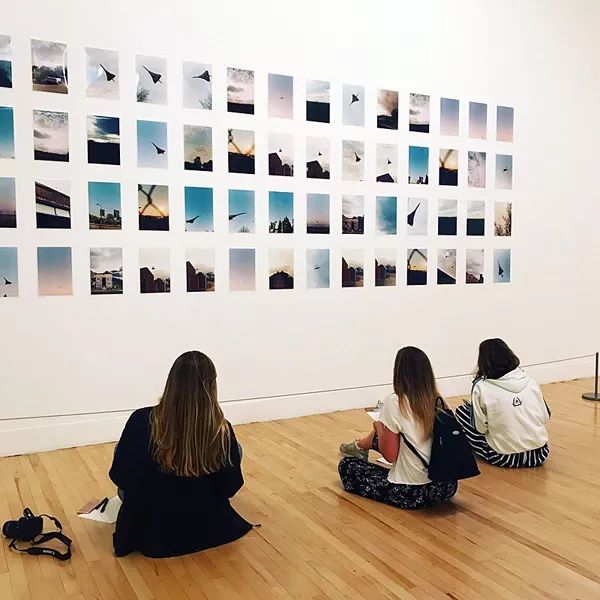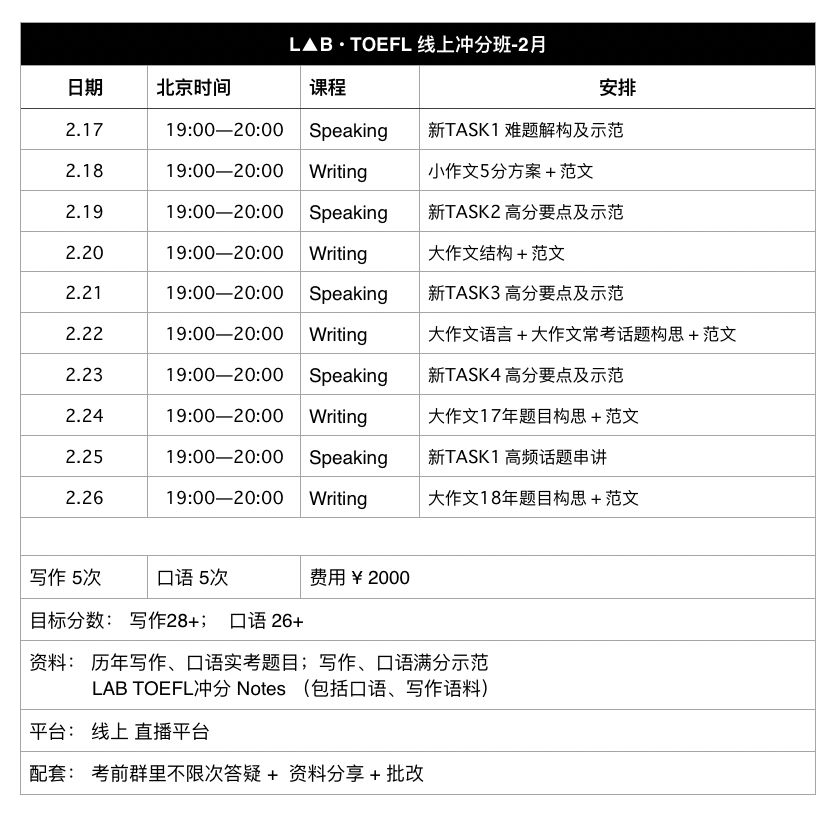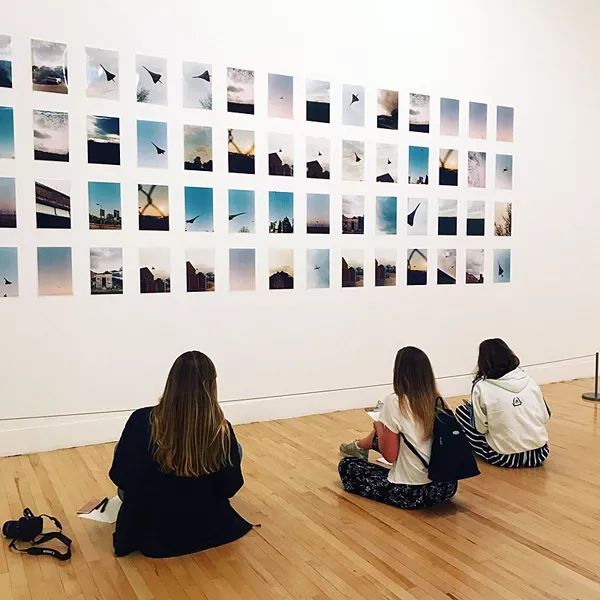今天东亚考区的TOEFL 写作文章 [和中国考场用题相同]
20200215
Do you agree or disagree that with the following statement?
Society benefits more from works of great artists than from political leaders.
这个题目总的来说还是要写的,毕竟有artists 和 politicians 两个方面去讨论,天然的可以做很多对比。
artists 能做的事情我们可能会马上想到。比如能让城市变美,让城市有名,发展旅游业等等。
但是politicians 到底能干什么呢?
我们可以来看一下ETS 曾经考过的,politicians 可以做的事情
20181028= 20160522 As the leader of a country, what would you do to ensure the prosperity and success of the country?
1. creating job opportunities for the unemployed;
2. lowering food price;
3. providing affordable housing
或者
20171216 Do you agree or disagree with the following statement: The most important thing for government to protect health care is to clean environment.
或者
20171118 = 20160625 What is the most important action for the government to take for the protection of environmental problems?
1.Fund researches on new energy sources such as solar and wind power?
2.Protect forests and natural wildlife species?
3.Pass and enforce laws to reduce the pollution.
所以从ETS 的角度来看political leaders 能做的有:
-保护环境
-繁荣城市 (具体来说就是稳定物价、创造工作岗位、提供公屋)
来看一篇纽时的文章 [GRE的同学也可以积累下这个arts 对于社会的重要性的语料]
当然写的时候就TOEFL 来说,用的思路已经够了,下面这篇文章更多是补充下思路,积累下表达

The Arts’ Key Role in Our Society
By Arthur Schlesinger Jr.
New York Times
This is a year curiously dotted by anniversaries; and one must hope that, as we salute the bitter memories of war, a less dramatic anniversary will not slip by unnoticed.
Twenty years ago this week, the Congress passed the National Foundation of the Arts and Humanities Act. The act’s preamble declared that support of the arts and humanities, ”while primarily a matter for private and local initiative, is also an appropriate matter of concern to the Federal Government.” In enacting this law, which led to the establishment of the National Endowments for the Arts and for the Humanities, Congress affirmed a conviction that the arts and humanities are vital to the health and glory of the Republic.
This was not a novel idea. In his first annual message, President George Washington told Congress he was ”persuaded that you will agree with me in opinion that there is nothing which can better deserve your patronage than the promotion of science and literature.” A third of a century later, President John Quincy Adams called for laws promoting ”the cultivation and encouragement of the mechanic and of the elegant arts, the advancement of literature, and the progress of the sciences.” In the third year of the Civil War, President Abraham Lincoln ordered that construction of the Capitol dome be completed. When critics objected to the diversion of labor and money from the prosecution of the war, President Lincoln said, ”If people see the Capitol going on, it is a sign that we intend this Union shall go on.”
President Franklin D. Roosevelt recalled this story in 1941 when, in a world ablaze with war, he dedicated the National Gallery of Art in Washington. And President John F. Kennedy recalled both these stories when he urged public support for the arts in 1962. Both Lincoln and Roosevelt, Kennedy said, ”understood that the life of the arts, far from being an interruption, a distraction, in the life of a nation, is very close to the center of a nation’s purpose – and is a test of the quality of a nation’s civilization.” The policy of Federal support is an expression of the value the Republic places on the arts, a symbol of the role assigned to the arts in our national life. And Congress today remains steadfast in its belief in the centrality of arts to a civilized society. It has shown no disposition to repeal the act of 1965 and has steadily resisted Presidential attempts to cut National Endowments budgets.
Yet the idea of public support, and with it the idea that the state of the arts is a matter of national concern, are under increasing challenge -ironically not from Congress but from renegade parts of the intellectual community itself. We live in a decade that likes to disparage government and to exalt the market. We are told that, if a cultural institution cannot pay its way, then it has no economic justification and, if no economic justification, no social justification. Art, we are given to understand, must stand or fall by the box-office test, and the devil take the hindmost.
To deny the arts a public role is the real trahison des clercs. For painters, composers, writers, film-makers, sculptors, architects, orchestras, museums, libraries, concert halls, opera houses contribute indispensably to the pride and glory of the nation. They are crucial to the forming of national traditions and to the preservation of civic cohesion. George Washington wrote: ”The Arts and Sciences essential to the prosperity of the State and to the ornament and happiness of human life have a primary claim to the encouragement of every lover of his Country and mankind.” The arts and humanities serve us all. They are surely as worthy as banks, corporations and other agencies of private profit to be objects of Federal concern, subsidy and even bail-out.
If history tells us anything, it tells us that the United States, like all other nations, will be measured in the eyes of posterity less by the size of its gross national product and the menace of its military arsenal than by its character and achievement as a civilization. Government cannot create civilization. Its action can at best be marginal to the adventure and mystery of art. But public support reinvigorates the understanding of art as a common participation, a common possession and a common heritage.
”Great nations,” said John Ruskin, ”write their autobiographies in three manuscripts – the book of their deeds, the book of their words and the book of their art. Not one of these books can be understood unless we read the two others; but of the three the only quite trustworthy one is the last. The acts of a nation may be triumphant by its good fortune; and its words mighty by the genius of a few of its children; but its art only by the general gifts and common sympathies of the race.”
最近LAB 线上冲分班级

报名咨询 微信labhugo, 备注冲分
本文源自微信公众号:LABcircle
